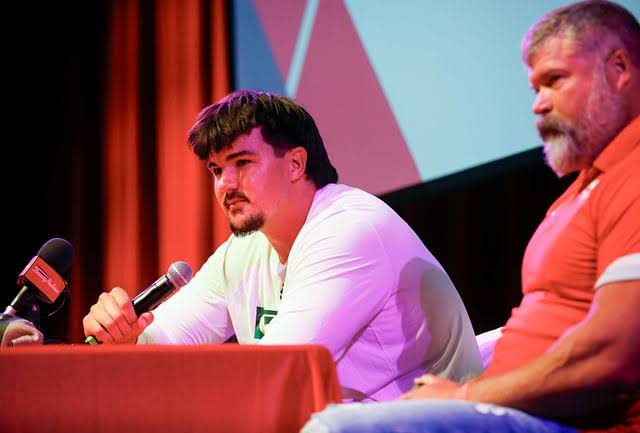The University of Miami’s acquisition of Jackson Cantwell, the top-ranked recruit in the 2026 class, has sparked significant discussion, particularly concerning the role of Name, Image, and Likeness (NIL) deals in his commitment. Cantwell, a 6-foot-8, 315-pound offensive tackle from Nixa, Missouri, chose the Hurricanes over prominent programs such as Georgia, Ohio State, and Oregon. His decision has drawn scrutiny from college football analysts who question the influence of NIL in the recruitment process.([SBNation.com][1], [Athlon Sports][2])
### NIL and Recruitment: A Growing Concern
While Cantwell has not publicly disclosed the specifics of any NIL agreements, his recruitment has been closely associated with NIL discussions. He enlisted Rosenhaus Sports Representation to assist in navigating the complexities of NIL opportunities, a move that underscores the increasing commercialization of college athletics . Analysts express concern that such arrangements may prioritize financial incentives over academic and athletic development, potentially undermining the integrity of college sports.([SBNation.com][1])
### Miami’s Strategic Positioning
The Hurricanes have been proactive in leveraging NIL to enhance their recruiting efforts. Miami’s collective, led by NIL-focused entities, has reportedly offered substantial financial packages to recruits, including Cantwell. This approach has positioned Miami as a formidable competitor in the recruitment landscape, attracting top-tier talent. However, critics argue that this reliance on financial inducements could overshadow the traditional values of college athletics, such as student-athlete development and academic achievement.
### Ethical Implications and Future Outlook
The involvement of NIL in Cantwell’s recruitment raises ethical questions about the commercialization of college sports. While NIL provides opportunities for student-athletes to benefit financially, it also introduces challenges related to equity, recruitment fairness, and the potential exploitation of young athletes. Analysts caution that without clear regulations and oversight, the current trajectory may lead to disparities among programs and compromise the educational mission of collegiate athletics.
As the landscape of college sports continues to evolve, the case of Jackson Cantwell serves as a focal point for discussions on the balance between athlete compensation and the preservation of the amateur nature of college athletics. Stakeholders, including NCAA officials, university administrators, and media analysts, will need to engage in ongoing dialogue to establish frameworks that ensure fair play, transparency, and the well-being of student-athletes in this new era.
